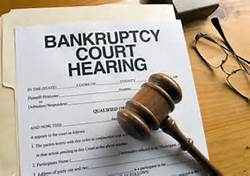Pinellas County Violates Bankruptcy Stay
The Sixth Circuit modified the foreclosure procedure on August 15, 2015 by Administrative Order. If you have a Bankruptcy client who has had a prior bankruptcy in the same foreclosure suit, the Judges will not stop the foreclosure sale- even if the bankruptcies were more then a year apart and the Stay is valid.
The rationale behind this is that a “void sale” can be set aside later. However, you will need to pay a fee of $53.00 to reopen the case to file your Motion to Set Aside the Sale, and you only have 10 days to file the Motion after the sale! If the bank buys the property and you have notified the bank’s counsel, your client may be safe.
If, a third party with no knowledge of the bankruptcy buys the property, is your client out of luck? Does the filing of the Suggestion of bankruptcy in the Court record constitute constructive notice on the Third Party Purchaser? What about the Fact that a Valid Stay Was Enforced? One of my colleagues has taken this issue to our Tampa Middle District Bankruptcy Judges- stay tune!
Side Note
Apparently, the Clerk’s Office in Seminole County tried a similar move through their internal procedures. A Motion For Sanction was filed against the Clerk’s office.
Motion for Sanctions – Seminole County Clerk
Carol A. Lawson, Esq., 28870 U.S. Hwy19 #300, Hodusa Towers, Clearwater, FL 33761 Phone: (727) 410-2705; email: calh@gate.net









